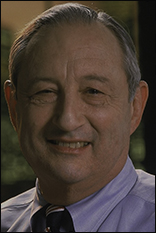ECE Alumnus Briskman Elected to National Academy of Engineering
Electrical and Computer Engineering alumnus and co-founder of Sirius XM Radio, Robert D. Briskman (M.S.E.E. ’61) was elected to the National Academy of Engineering (NAE) today. Election to the NAE is among the highest professional distinctions accorded to an engineer. Briskman is honored for his achievements in satellite communications, which culminated in Sirius XM Radio. NAE membership honors those who have made outstanding contributions to engineering research, practice or education, or to the engineering literature. The academy also honors the "pioneering of new and developing fields of technology, making major advancements in traditional fields of engineering, or developing/implementing innovative approaches to engineering education." Briskman is co-founder of Sirius Satellite Radio and is currently Technical Executive of Sirius XM Radio. His career has focused on communication satellite systems since their inception. Not only was he the technical innovator of mobile satellite radio services, he was also responsible for the development, design and implementation of the Radio Determination Satellite Service provided by the Geostar Corporation, where he worked from 1986-1990. During his career, Briskman also worked for the Communications Satellite Corporate (COMSAT) and The National Aeronautics and Space Administration (NASA) during the founding of each organization. Briskman received the APOLLO Achievement Award from NASA for the design and implementation of the Unified S-Band System. Before NASA, he was employed by IBM in 1954 and worked on the design of the first asynchronous buffer system. Prior to his tenure at IBM, Briskman was employed by the Army Security Agency where he was engaged in communications systems development and analysis. He also served two years of military service as an Electronic Countermeasures Analyst Officer, for which he was awarded the Army Commendation Medal. Briskman is a Fellow of the Institute of Electrical and Electronics Engineers (IEEE), in which he formerly held positions of Secretary-Treasurer, Director and Vice President for Technical Activities. He was awarded the 2008 IEEE AESS Pioneer Award for communications satellite development. Briskman has also been President of the Aerospace and Electronics Systems Society, Director of the National Telecommunications Conference, Chairman of the EASCON Board of Directors, and Chairman of the IEEE Standards Board. He is a Fellow of the AIAA, which gave him its 2007 Aerospace Communications Award of the Washington Academy of Science, past President of the Washington Society of Engineers, and a member of IAA, AFCEA and the Old Crows. Briskman has authored over fifty technical papers, holds many United States and foreign patents, served on the Industry Advisory Council to NASA, and is a licensed professional engineer Briskman has been the Consulting Editor, Telecommunications for the McGraw-Hill Encyclopedia of Science and Technology over the past decade. He is also a recipient of the IEEE Centennial Medal and has been inducted into the SSPI Hall of Fame and into the Space Technology Hall of Fame by the Space Foundation. He holds a B.S.E. degree from Princeton University and a M.S.E.E. degree from the University of Maryland which gave him in 2007 its Technology Business Leadership Award and in 2010 inducted him into its Clark School of Engineering Innovation Hall of Fame. NAE President C.D. (Dan) Mote Jr. announced that 67 newly elected members and 11 new foreign associates increases the total U.S. membership to 2,250 and the number of foreign associates to 214. Election to the National Academy of Engineering is among the highest professional distinctions accorded to an engineer. Academy membership honors those who have made outstanding contributions to "engineering research, practice, or education, including, where appropriate, significant contributions to the engineering literature," and to the "pioneering of new and developing fields of technology, making major advancements in traditional fields of engineering, or developing/implementing innovative approaches to engineering education."
Related Articles: February 6, 2014 Prev Next |


